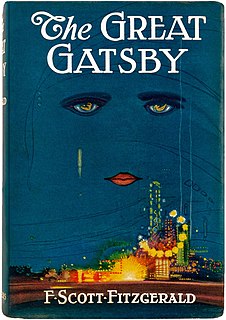
The Great Gatsby is a 1925 novel by American writer F. Scott Fitzgerald. Set in the Jazz Age on Long Island, near New York City, the novel depicts first-person narrator Nick Carraway's interactions with mysterious millionaire Jay Gatsby and Gatsby's obsession to reunite with his former lover, Daisy Buchanan.

June Havoc was a Canadian American actress, dancer, stage director and memoirist.

Gypsy Rose Lee was an American burlesque entertainer, stripper and vedette famous for her striptease act. Also an actress, author, and playwright, her 1957 memoir was adapted into the 1959 stage musical Gypsy.

Gypsy: A Musical Fable is a musical with music by Jule Styne, lyrics by Stephen Sondheim, and a book by Arthur Laurents. It is loosely based on the 1957 memoirs of striptease artist Gypsy Rose Lee, and focuses on her mother, Rose, whose name has become synonymous with "the ultimate show business mother." It follows the dreams and efforts of Rose to raise two daughters to perform onstage and casts an affectionate eye on the hardships of show business life. The character of Louise is based on Lee, and the character of June is based on Lee's sister, the actress June Havoc.

Patti Ann LuPone is an American actress and singer best known for her work in musical theater. She has won three Tony Awards, two Olivier Awards, two Grammy Awards, and was a 2006 inductee to the American Theater Hall of Fame.

Suzanne Pleshette was an American theatre, film, television, and voice actress. Pleshette started her career in the theatre and began appearing in films in the late 1950s and later appeared in prominent films such as Rome Adventure (1962), Alfred Hitchcock's The Birds (1963), and Spirited Away (2001). She later appeared in various television productions, often in guest roles, and played Emily Hartley on The Bob Newhart Show from 1972 until 1978, receiving several Emmy Award nominations for her work.

Daisy May Bates, CBE was an Irish-Australian journalist, welfare worker and lifelong student of Australian Aboriginal culture and society. Some Aboriginal people referred to Bates by the courtesy name Kabbarli "grandmother."

"The Raggle Taggle Gypsy", is a traditional folk song that originated as a Scottish border ballad, and has been popular throughout Britain, Ireland and North America. It concerns a rich lady who runs off to join the gypsies. Common alternative names are "Gypsy Davy", "The Raggle Taggle Gypsies O", "The Gypsy Laddie(s)", "Black Jack David" and "Seven Yellow Gypsies".
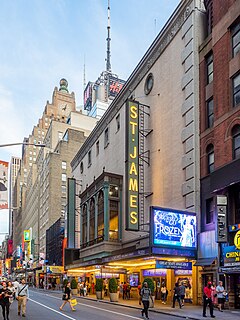
The St. James Theatre, originally Erlanger's Theatre, is a Broadway theater at 246 West 44th Street in the Theater District of Midtown Manhattan in New York City. Opened in 1927, it was designed by Warren and Wetmore in a neo-Georgian style and was constructed for A. L. Erlanger. It has 1,709 seats across three levels and is operated by Jujamcyn Theaters. Both the facade and the auditorium interior are New York City landmarks.
Cecil Mack was an American composer, lyricist and music publisher.

Jay Gatsby is the titular fictional character of F. Scott Fitzgerald's 1925 novel The Great Gatsby. The character is an enigmatic nouveau riche millionaire who lives in a luxurious mansion on Long Island where he often hosts extravagant parties and who allegedly gained his vast fortune by illicit bootlegging during prohibition in the United States. Fitzgerald based many details about the fictional character on Max Gerlach, a mysterious neighbor and World War I veteran whom the author met while living in New York City during the raucous Jazz Age. Like Gatsby, Gerlach threw lavish parties, never wore the same shirt twice, used the phrase "old sport", claimed to be educated at Oxford University, and fostered myths about himself, including that he was a relation of the German Kaiser.
"River" is a song by Canadian singer songwriter Joni Mitchell, from her 1971 album Blue. Written on piano, it has become a standard for artists in many music styles, and has become popular as Christmas music. Although never released as a single, “River” holds second place among Mitchell's songs most recorded by other artists. In 2021, it was ranked at No. 247 on Rolling Stone's "Top 500 Best Songs of All Time".
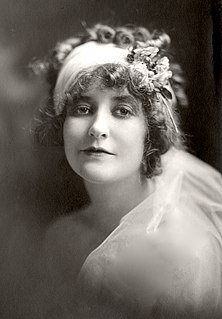
Rhea Ginger Mitchell was an American film actress and screenwriter who appeared in over 100 films, mainly during the silent era. A native of Portland, Oregon, Mitchell began her acting career in local theater, and joined the Baker Stock Company after completing high school. She appeared in various regional theater productions on the West Coast between 1911 and 1913.
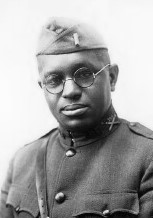
James Timothy Brymn was an African-American conductor, arranger, composer, and pianist who generally performed northeastern hot style jazz. He was usually credited as Lieutenant James Tim Brymn, and was sometimes billed as "Mr. Jazz Himself".
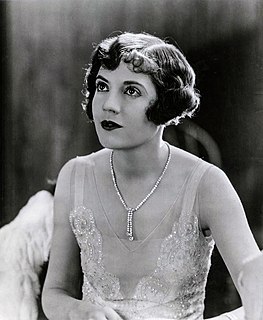
Daisy Fay Buchanan is a fictional character in F. Scott Fitzgerald's 1925 novel The Great Gatsby. The character is a wealthy socialite from Louisville, Kentucky who resides in the fashionable town of East Egg on Long Island during the Jazz Age. She is narrator Nick Carraway's second cousin, once removed, and the wife of polo player Tom Buchanan, by whom she has a daughter. Before marrying Tom, Daisy had a romantic relationship with Jay Gatsby. Her choice between Gatsby and Tom is one of the novel's central conflicts. Described by Fitzgerald as a "golden girl", she is the target of both Tom's callous domination and Gatsby's dehumanizing adoration. The ensuing contest of wills between Tom and Gatsby reduces Daisy to a trophy wife whose sole existence is to augment her possessor's socio-economic success.

Ginevra King Pirie was an American socialite and heiress. As one of Chicago's "Big Four" debutantes during World War I, she inspired many characters in the novels and stories of writer F. Scott Fitzgerald; in particular, the character of Daisy Buchanan in The Great Gatsby. King and Fitzgerald shared a passionate romance from 1915 to 1917, but their relationship stagnated after King's family intervened, and her father purportedly warned the young writer that "poor boys shouldn't think of marrying rich girls". Fitzgerald scholar Maureen Corrigan notes that Ginevra, far more so than author's wife Zelda Sayre, was "the love who lodged like an irritant in Fitzgerald's imagination, producing the literary pearl that is Daisy Buchanan".
Alice Leslie Carter was an American classic female blues singer, active as a recording artist in the early 1920s. Her best-known tracks are "Decatur Street Blues" and "Aunt Hagar's Children Blues". She was a contemporary of the better-known recording artists Ma Rainey, Bessie Smith, Clara Smith, Victoria Spivey, Sippie Wallace, and Bertha "Chippie" Hill. Little is known of her life outside music.

Captain Isaac Edward Emerson (1859–1931) was a wealthy American businessman, socialite, and seaman. He is most notable for having created the headache remedy Bromo-Seltzer upon which his great wealth was based and the reason he was known as the "Bromo-Seltzer King".
Stacy Lynn Waddell is an American artist. She attended North Carolina State University and the University of North Carolina at Chapel Hill. She was a finalist for the Factor Prize for Southern Art in 2008, and a recipient of a Joan Mitchell Painters and Sculptors Grant in 2010.















